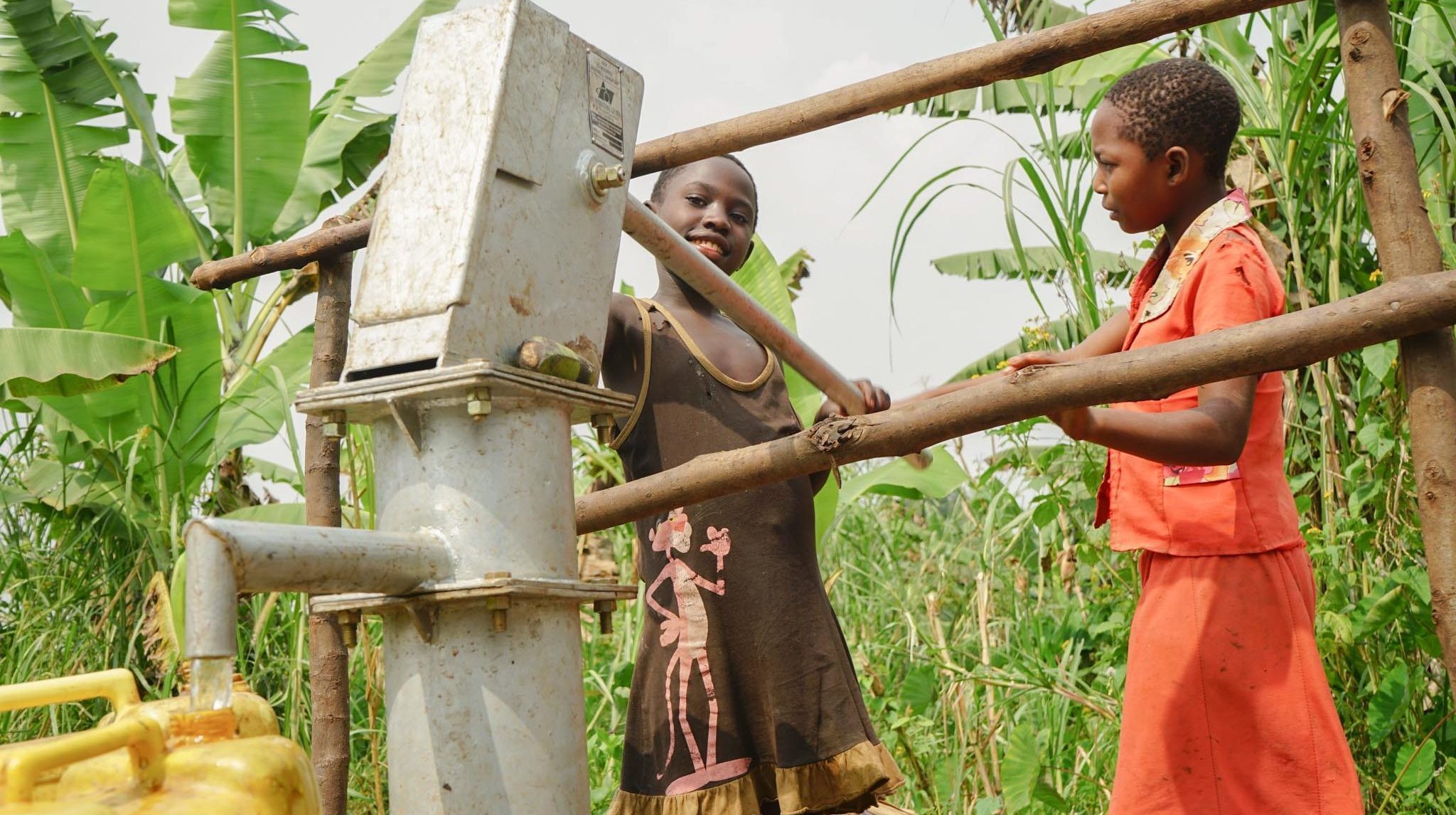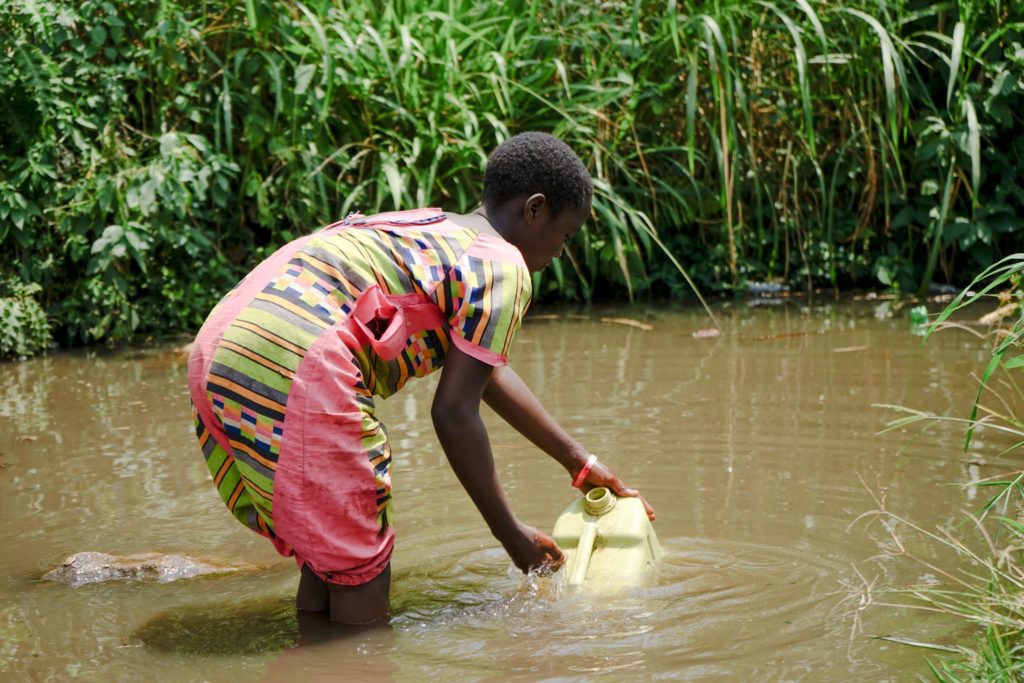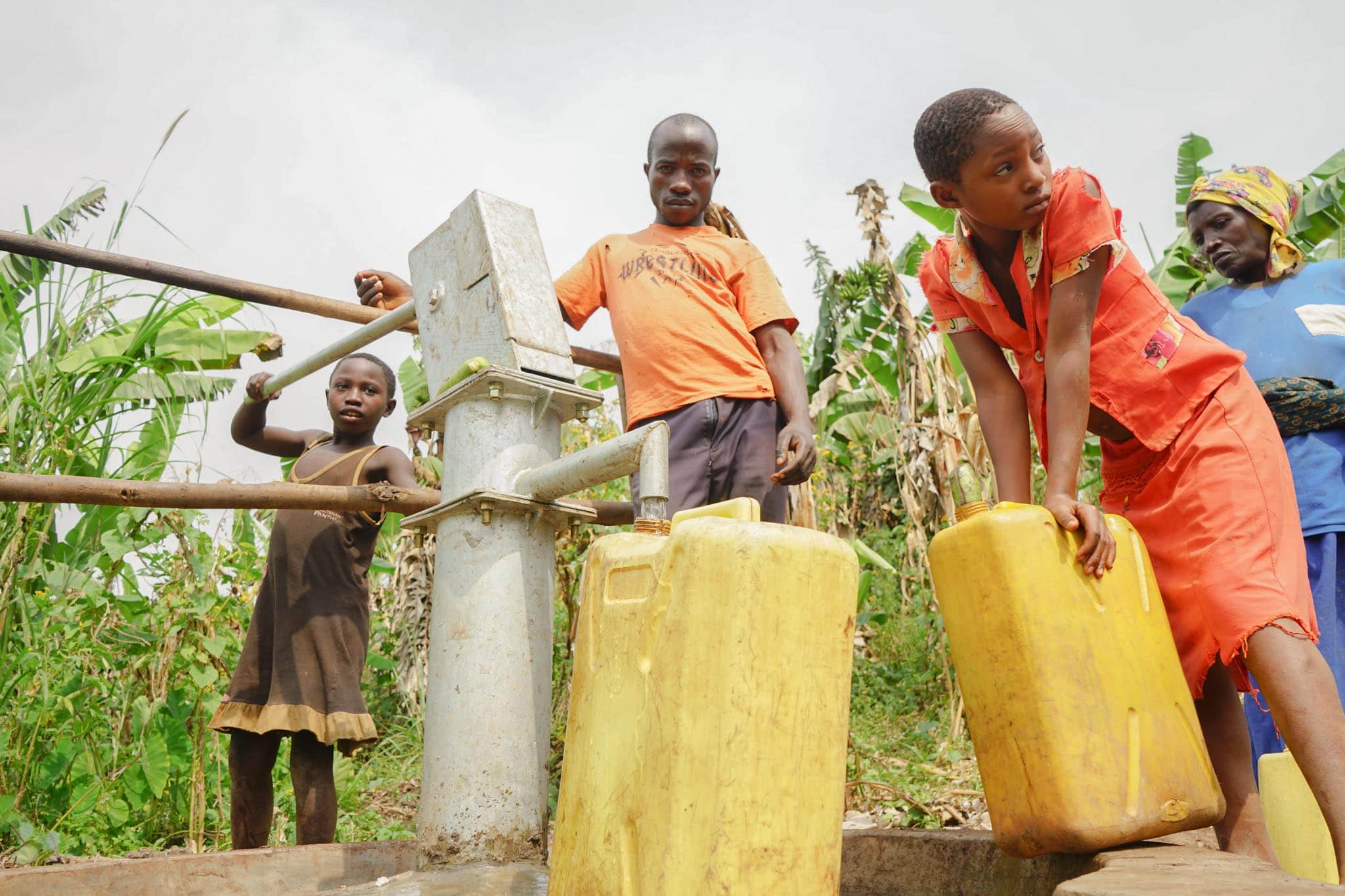Water Security for the Community

In Rukiri B village in Kagadi district, Daisy, like the other members of her community, used to fetch water from an unprotected stagnant source for domestic use as well as drinking. The entire community did not have access to safe and clean water.

“We use this water at home for doing domestic work like washing clothes and dishes. For drinking, we first boil it and then drink it. This is all we have. There is no other water source in the entire neighbourhood.” – Daisy, community member
Like many other last-mile villages living in ultra-poverty, water-security remains a major concern. With community members not having access to clean and safe drinking water, they are susceptible to water borne diseases like cholera, dysentery and diarrhea. Having access to safe and adequate water supply not only has health impacts but also has a direct effect on a community’s safety, social determinants as well as economic potential. It is common for women and children to be tasked with the responsibility of fetching water for household use. The farther away the water source is, the longer it takes for them – taking them away from other productive activities such as income-generation and education, exposing them to safety risks along the way, and impacting their quality of life.
Today, Rukiri B is one of our partner villages where Raising The Village (RTV) has implemented livelihood programs with a multi-dimensional and holistic approach to poverty alleviation. A well has been constructed where community members can access clean and safe water by pumping uncontaminated water for consumption and household use. In addition to provision of basic health services through our Health Outreaches, our WASH programming is training and sensitizing the communities to adopt good hygiene and sanitation practices to take care of their health. With scarcity barriers addressed, community members will be able to fully participate in our livelihood and capacity building initiatives.

“There are no words that can express the way my community and I appreciate the installation of that well.” – Thomas, Chairperson of Rukiri B Village
With 2.2 billion people still lacking access to safe water around the world*, initiatives like these play a substantial role in contributing to the communities’ wellbeing. Investing time in listening to communities and prioritizing their needs can go a long way. The results of programming that values a community-first approach for the removal of scarcity barriers, are often sustainable and empowering. Increased productivity due to access to water and health, improved health determinants, reduced health & safety risks for women and children and inclusive community development due to broad participation in training activities are just a few of those outcomes.
* Progress on household drinking water, sanitation and hygiene, WHO, 2019.

